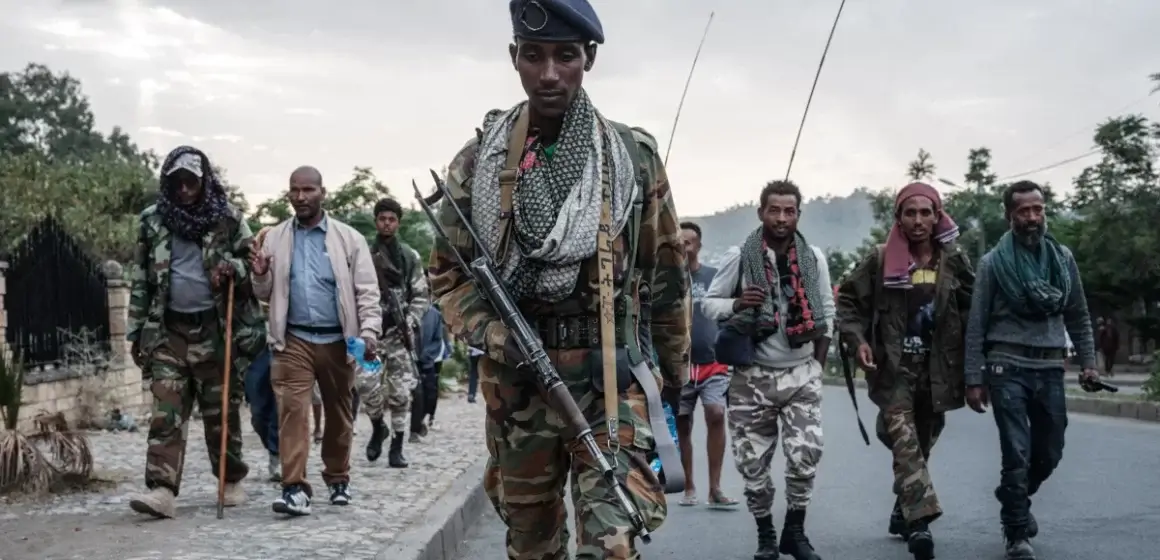|
LISTEN TO THIS THE AFRICANA VOICE ARTICLE NOW
Getting your Trinity Audio player ready...
|
Tensions between Ethiopia and Eritrea have reached a boiling point, with military movements along the border raising fears of a full-scale war. Officials in Ethiopia’s Tigray region have warned that an armed conflict between the two nations could erupt at any moment, threatening to destabilize the Horn of Africa and worsen an already dire humanitarian situation.
The growing hostilities come in the wake of Ethiopia’s recent civil war in Tigray, which lasted from 2020 to 2022 and resulted in hundreds of thousands of deaths. While that conflict officially ended, divisions within Tigray’s political leadership and unresolved disputes between Ethiopia and Eritrea have fueled new tensions. If war breaks out, it could undermine what little stability remains in the region and have devastating consequences for millions of people.
Ethiopia and Eritrea have a long and troubled history. After Eritrea gained independence from Ethiopia in 1993 following a three-decade war, the two countries engaged in another brutal border war between 1998 and 2000. The hostility persisted for years until a peace deal in 2018, led by Ethiopia’s Prime Minister Abiy Ahmed, finally normalized relations—earning him the Nobel Peace Prize.
However, that peace has been unraveling in recent years. Eritrea played a controversial role in the Tigray War, sending its troops to support Ethiopia’s federal government against the Tigray People’s Liberation Front (TPLF). When the war ended, Eritrea was left out of the peace negotiations, leading to growing animosity between the two nations.
Now, the situation has become even more volatile due to divisions within the TPLF itself. The group has fractured into two factions—one aligned with Ethiopia’s federal government and another that opposes it. The dissident faction has been accused of forming an alliance with Eritrea, leading to fresh tensions in Tigray.
On Tuesday, this faction seized control of Adigrat, a strategic town near the Eritrean border, prompting concerns that fighting could escalate further. Getachew Reda, head of Tigray’s interim administration, has urged Ethiopia’s federal government to intervene, warning that Tigrayans could once again become victims of a war they did not choose.
Amid the rising tensions, both countries appear to be preparing for the possibility of war. Eritrea reportedly ordered a nationwide military mobilization in mid-February, according to the UK-based Human Rights Concern – Eritrea. At the same time, diplomatic sources and Tigrayan officials have reported that Ethiopia has been moving troops toward the Eritrean border in recent weeks.
Despite these developments, Ethiopia’s federal government has remained silent, while Eritrea has dismissed warnings of war as “war-mongering psychosis.” However, regional analysts believe the threat is real. Former U.S. and EU envoys Payton Knopf and Alexander Rondos recently described the situation as a “powder keg waiting for a spark” in an essay for Foreign Policy.
Beyond internal rivalries, Ethiopia and Eritrea’s tensions are also tied to wider regional dynamics. Since last year, Prime Minister Abiy has repeatedly stated that Ethiopia has a right to sea access—a claim that has alarmed neighboring nations, particularly Eritrea, which controls part of the Red Sea coast. Many analysts interpret Abiy’s statements as an implicit threat to Eritrea’s territorial sovereignty.
In response, Eritrea has been strengthening its regional alliances. In October 2023, it signed a security agreement with Egypt and Somalia, a move widely seen as an effort to counterbalance Ethiopia’s growing ambitions. This geopolitical maneuvering has only deepened the rift between the two countries, increasing the risk of military confrontation.











LEAVE A COMMENT
You must be logged in to post a comment.